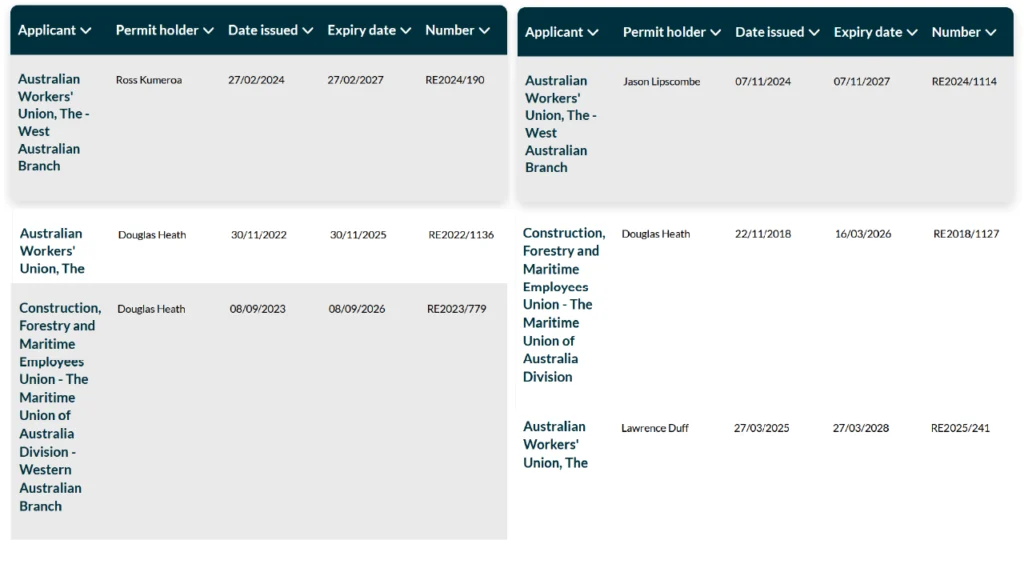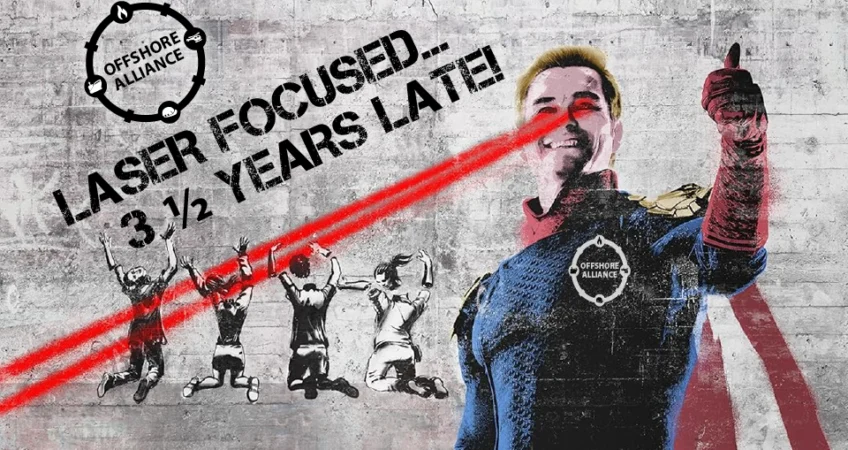After years of silence, the Alliance suddenly appears — but only now that boots are on the ground.
In a previous article, we briefly touched on the history of how the Pluto Train 2 Greenfields Agreement was made. Readers should refer to that first for historical context before continuing. Click Here.
For more than three and a half years, the Offshore Alliance has been missing in action at the Pluto Train 2 project. No site visits. No engagement. No genuine representation. But now, as the Pluto 2 agreement is up for renewal, the Alliance has suddenly resurfaced — penning a formal letter to Bechtel demanding recognition in upcoming enterprise bargaining negotiations.
And with that letter, the mask slips.
The document — signed by both the Australian Workers’ Union (AWU) and the Maritime Union of Australia (MUA), the two components of the so-called “Offshore Alliance” — doesn’t just signal a renewed interest in Pluto 2. It confirms what many in the industry have long believed: the Offshore Alliance is little more than a front for the AWU, and this move is a strategic attempt to reassert relevance now that workers have built enough leverage to make it worth their while.
Absent When It Mattered
Let’s be clear — the AWU was a signatory to the original Pluto Train 2 Agreement. That same agreement they’re now criticising. Yet for the past three and a half years, neither the AWU nor its Offshore Alliance alter ego made any significant effort to represent workers on site or to improve upon the conditions they had already signed off on.
In stark contrast, the three traditional construction unions — the AMWU, CFMEU, and ETU — have been on site time and again throughout this period. They’ve walked the job, spoken to workers, and done the groundwork necessary to prepare for this critical moment. These are the unions who’ve been laying the foundation for meaningful change — not the ones showing up late and claiming credit.
It is only now, with boots on the ground and workers organising through their traditional unions, that the Alliance has swooped in — declaring that Ross Kumeroa will “take carriage of” all industrial and safety matters. Not because the Alliance has suddenly remembered its duty to workers, but because there’s now momentum they can hijack.
Bargaining Now That It’s Convenient
Their letter is loaded with references to the Fair Work Act and good faith bargaining obligations — language that sounds righteous, but rings hollow when placed in context. If the AWU was genuinely committed to protecting workers, it would have been, advocating, listening, and showing up on site from day one.
Instead, the Alliance waited. Waited until it was easy and strategically useful to act. Now, with Bechtel preparing to bargain a replacement agreement, the AWU wants recognition as the “default bargaining representative.” But default doesn’t mean it has members— and it certainly doesn’t mean credible.
Workers Created Leverage — Not the Alliance
What changed? Not the Alliance. Not the AWU. The only thing that changed is the presence of committed workers who have taken the initiative to push for something better. Members of the three construction unions have told this publication they are not happy with the Alliance portraying itself as the hero and saviour of the industry — especially when the AWU has been selling out workers for well over 100 years.
These workers — through their relevant unions — have created the leverage. They’ve raised the issues. They’ve been organised. And now that the groundwork has been laid and the pressure is mounting, the Offshore Alliance wants to step in and claim a leadership role in a fight it didn’t start.
The Offshore Alliance says it wants to negotiate “an enterprise agreement that exceeds current standards.” But where was this ambition when the original deal was being signed? The issues on this project have been well known to all in the industry. So why did it take nearly four years — and a groundswell of worker activity — for the Alliance to assert itself?
The Bottom Line
The Alliance’s letter doesn’t inspire confidence — it confirms suspicion. It proves that this is not about principles, but about presence. Not about workers, but about optics.
Workers should remember who was there when it counted — and who only showed up when the cameras were rolling and the tide was turning.
Because in this game, showing up late isn’t leadership. It’s opportunism.
If you need more proof—look no further than the Fair Work Commission web site. Here.


